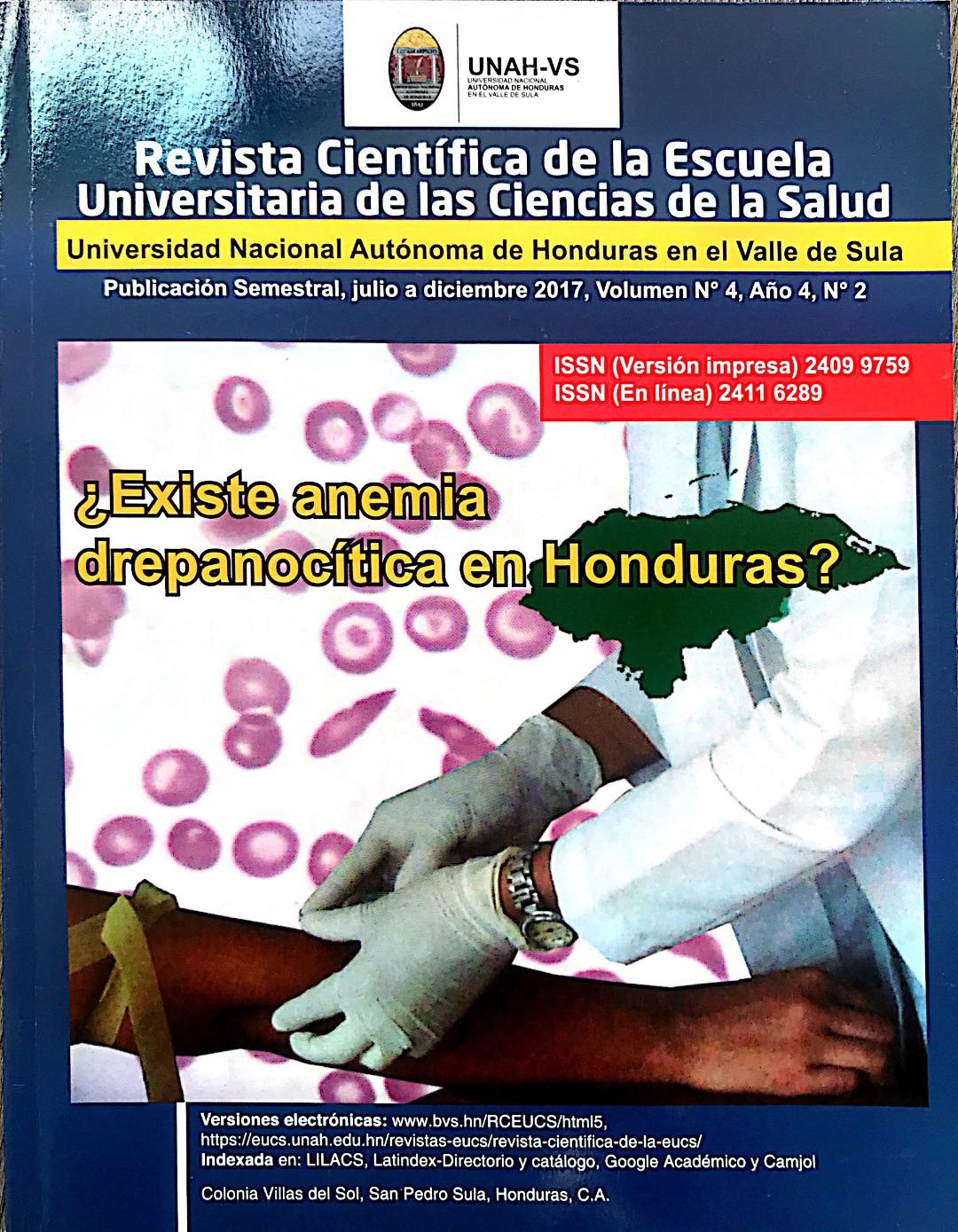Factors associated to Early Neonatal Sepsis in Newborns at Hospital San Marcos, Ocotepeque
DOI:
https://doi.org/10.5377/rceucs.v4i2.7111Abstract
Early neonatal sepsis is called the clinical syndrome characterized by signs and symptoms of systemic infection that manifests itself within the first 3 days of life. The objective was to identify the factors associated with early neonatal sepsis in live births attended at the Hospital San Marcos, Ocotepeque during the period from May 2015 to December 2016. Patients and methods a non experimental descriptive crosssectional study of neonates diagnosed with early neonatal sepsis. The sample consisted of 40 clinical files with diagnosis of early neonatal sepsis. The data collection was by means of a questionnaire validated by the cronbach alpha. The sampling technique of this research was for convenience adjusted to the objectives of the research. The data were processed and analyzed with the statistical program SPSS version 22.0. Results 40% (16) of the mothers oscillate between 20 and 25 years of age. Eighty-four percent (32) attended primary school, an incomplete 40% (16) primary school. 32.5% (13) were primigravi- dae and 5% (2) were large multiparous. 42.5% (17) performed between 7 and 9 prenatal controls. 57.5% (23) of the births via abdominal 42.5% (17) vaginal route. 45% (18) had clear amniotic fluid, 55% (22) had some degree of meconium. 77.5% (31) male gender. 47.5% (19) received neonatal resus- citation. Conclusion the factors associated to early neonatal sepsis were low educational level, being primigravida, cesarean delivery, meconial amniotic fluid and male gender.
Keywords
Neonatal sepsis, Risk factors, Newborn
Downloads
2349




